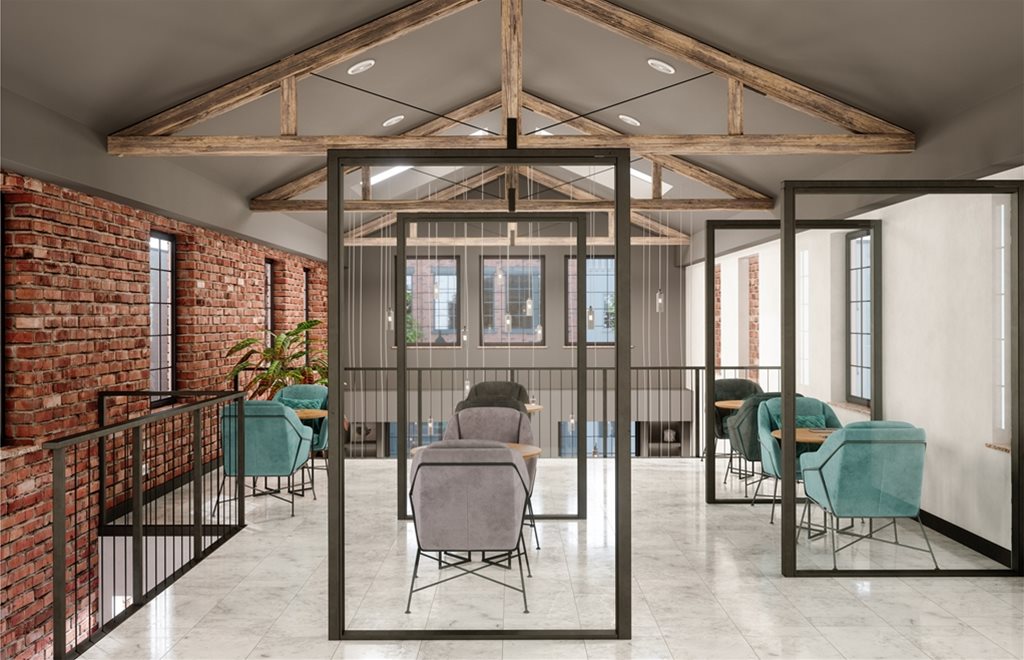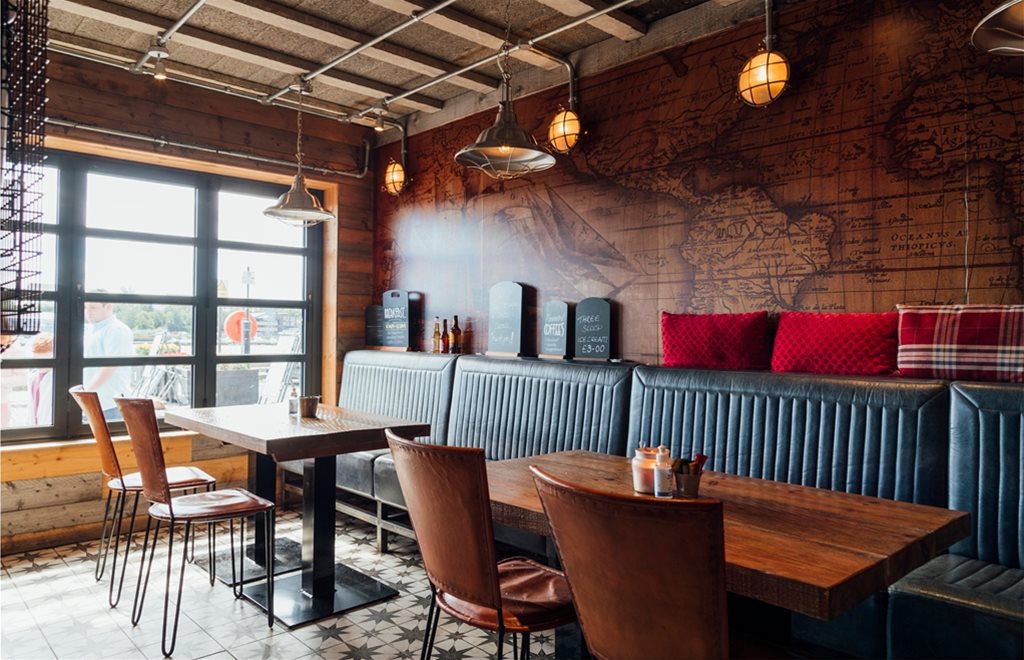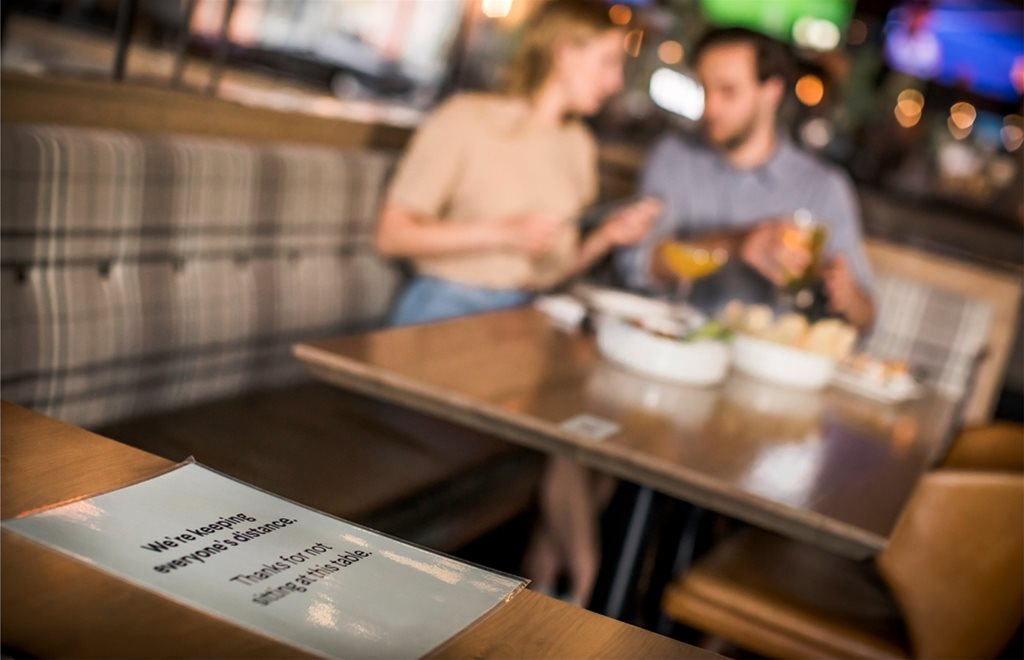As COVID-19’s impacts continue into 2021, new safety measures will affect existing ones, suggests Stephen Adams, who paints us the landscape
SUBMITTING ARTICLES connected with COVID-19 to any publication is hazardous in itself, as they can already be outdated by the time of publication. The current shifting landscape of government rules must be incredibly disruptive and frustrating to businesses, especially those that are client facing. However, the fire safety industry continues to remain resilient and active in the field, in the interest of protecting life and property.
At the time of writing (October 2020), the UK is in a state of anticipation of further lockdowns and restrictions in particular sectors, especially the hospitality sector. With revenue a real concern, it would be understandable (but not acceptable) if safety management other than COVID-19 is being overlooked to a certain degree. This could create possible exposure to unnecessary levels of risk in other areas.
Throughout the COVID-19 pandemic, fire and rescue services have continued to promote the fact that fire safety legislation is still being enforced. Earlier in 2020, Merseyside Fire and Rescue Service (MFRS) reinforced advice when station manager Bill Shepherd from its protection department gave this warning: ‘As government guidance changes and lockdown restrictions are eased, more and more people will be returning to work but we understand that businesses are still not operating at what they would deem to be “normal”. Coronavirus is not an excuse for disregarding your [fire safety] responsibilities and businesses must ensure that they have an adequate amount of competent people to help in the implementation of both preventative and protective fire safety measures.’
BAFE (British Approvals for Fire Equipment) has observed the many changes to building layouts and use due to COVID-19 throughout the pandemic, and hopes that premises managers have been reviewing all affected life safety policies and assessments accordingly.
Competency costs
Financial pressures on businesses are reflected in the decisions made about their operational activities. A recent account from a third party certificated fire risk assessment organisation noted that it had lost work due to refusing to adjust assessment reports to remove ‘difficult’ questions and issues.
Subsequently, the client of the organisation refused the report, went to another provider, and faces no legal ramifications in so doing. The frustration here is that when work is completed to a quality third party certificated standard, it will represent the best levels of work. Rejecting the outcome of this work therefore would knowingly overlook potential issues that may save lives in a fire. This would be particularly critical evidence in any court to establish accountability.
The expression ‘buy cheap, buy twice’ comes to mind, knowing that when poor fire safety provisions fail, hopefully without any injury to life, additional work will be required to rectify this when it should have been done right in the first place. This could also be alongside any potential prosecution, which could be far more costly to the affected organisation and building manager.

Hospitality diversifies
In late 2018, BAFE launched a competency scheme covering the design, installation, commissioning, recharge and maintenance of commercial kitchen fire suppression and extinguishing systems (BAFE SP206). At that time, fire safety industry and insurance data revealed that food and drink related fires were statistically the third most likely cause of large fires, accounting for nearly 10% of all large loss fires.
Fires involving restaurants and cafes represented 42% of all fires in the food and drink sector put together, and there is now the danger of these numbers rising with hurried adaptations to mitigate COVID-19 exposure. For example, many establishments have introduced takeaway options, so they may be storing more materials – such as cardboard boxes – in tight kitchen spaces. There is also a chance of increased use of cooking equipment as a result of this forced diversification of service.
If not mitigated and controlled correctly, the risks in a commercial kitchen are particularly high. The insurance sector has the power to lead the way on heightening safety, and policies demanding that kitchen fire protection systems must be designed, installed, commissioned, recharged and maintained by an appropriately third party certificated provider are paramount in keeping commercial kitchen staff safe and businesses fully operational – reducing premiums as a result.
When launching the recent evacuation alert systems scheme (BAFE SP207), Chris Auger, BAFE’s director of schemes, commented: ‘The expanding portfolio of BAFE schemes represents the necessity of quality evidence of competency required for niche but extremely important areas of the industry. Third party certification is going to be a key focus of attention for the built environment moving forward and BAFE needs to position itself to offer schemes that are both needed and reflect the current concerns of occupants, regulators, service providers and building owners/managers.’

Raising competency
Much like Tony Blair’s famous education speech at the Labour Party conference in 1996, ‘competency, competency, competency’ continues to be the primary focus and descriptor for the future landscape of the fire safety industry. Both organisational and individual competency will be scrutinised further, especially within the construction sector following the Grenfell Tower fire that occurred well over three years ago.
Earlier this year, Dame Judith Hackitt spoke in a Building Engineering Services Association (BESA) webinar entitled ‘Essential industry changes needed post-Grenfell’, in which she said there was ‘a need to strengthen guidance, but over time we also need to move to a position where guidance is owned more by industry – rather than industry waiting to be told what to do. [There is] a really important need to increase the levels of competence and oversight by the industry itself’.
She wants ‘clear accountabilities and responsibility’ and ‘the industry to recognise it needs to change its culture, stop waiting to be told what to do – take responsibility and recognise you have an important role to play in ensuring that people have properties that are safe for them to live in and to use’.
More recently, while providing evidence to the Housing, Communities and Local Government Select Committee, she stated: ‘We need to raise competence throughout the sector, but for certain critical roles […] there will be a need to be accredited independently in the role they fulfil.’
BAFE believes that this culture change will spread out further over the next few years to reach the whole of the built environment, including business properties. The imperative for competency in fire safety is not going away any time soon. It is long overdue, and evidence of competency will have to be determined and recorded to demonstrate due diligence, as well as for providers to be permitted to begin any work.
This will obviously assist in future investigations in order to establish if any persons were accountable for any preventable loss of life or property due to fire. If everything is undertaken to a high standard, we can control the risk, avoid major fires and ethically work with a clear conscience going forward
Stephen Adams is chief executive of BAFE
